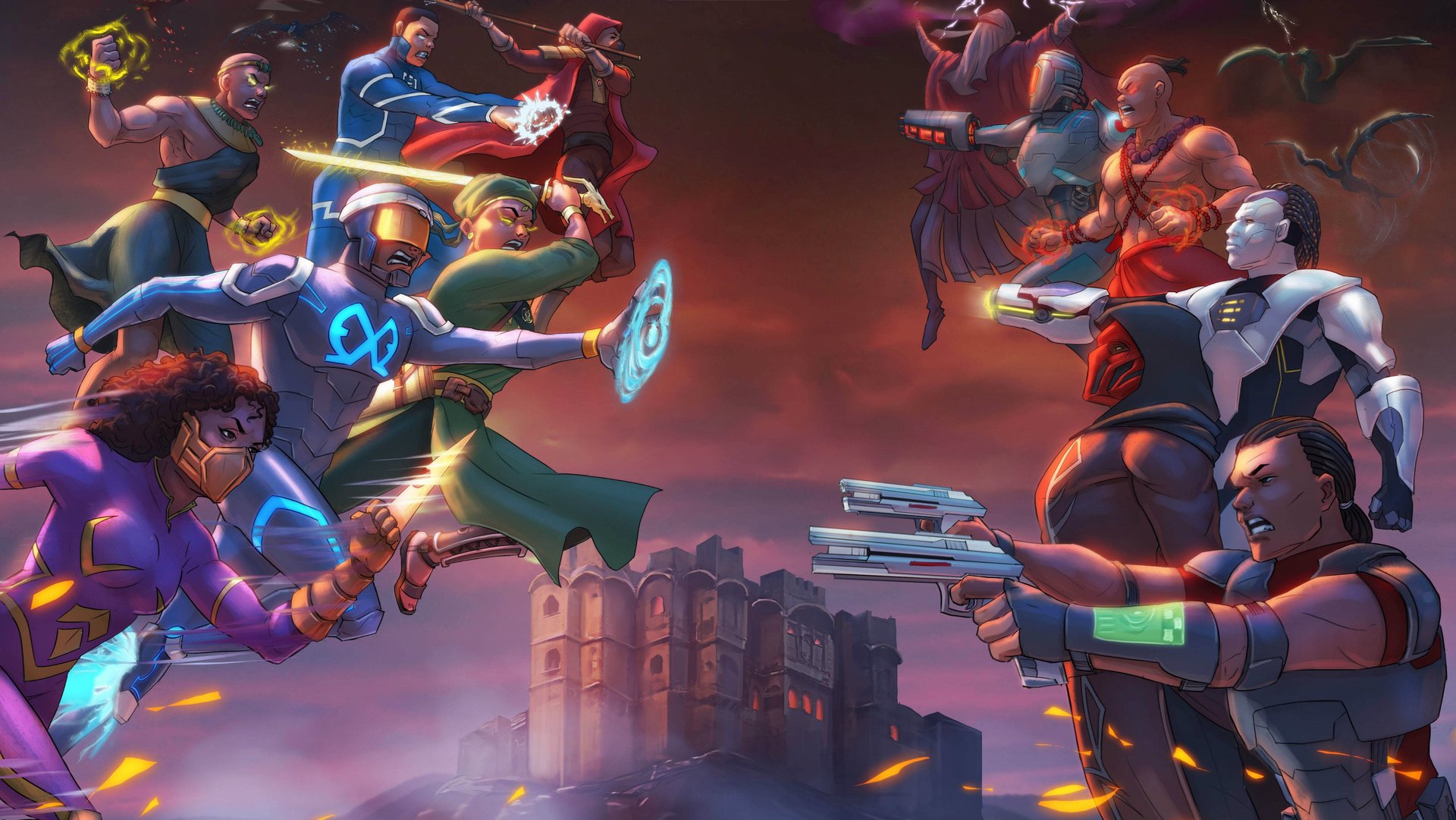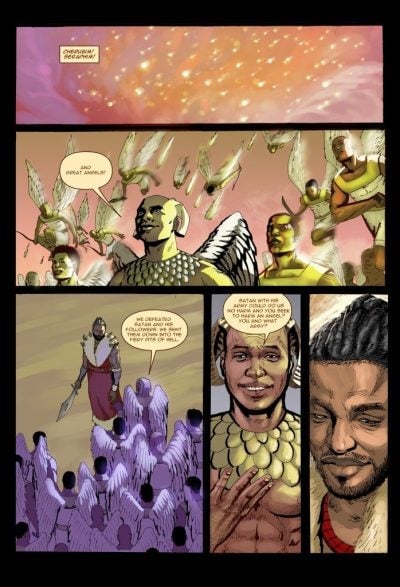Marvel’s Black Panther is a boon for Nigeria’s homegrown comic superheroes
The euphoria around the Black Panther movie is well and truly alive in Nigeria. Across the country’s cinemas in major cities, screenings have steadily sold out since the movie’s release last week with some movie goers showing up in their best “Wakanda-like” attires.


The euphoria around the Black Panther movie is well and truly alive in Nigeria. Across the country’s cinemas in major cities, screenings have steadily sold out since the movie’s release last week with some movie goers showing up in their best “Wakanda-like” attires.
The appeal is clear: it’s a movie about a fictional African country which draws lots of inspiration from real African cultures, including Nigeria. Put another way, the audience connects with the movie. That connection could be a boon for local comic book and animation companies who have, over the past few years, focused on creating a crop of homegrown characters.
Since 2012, Lagos has hosted a Comic Con with several companies and creators showcasing characters and stories. While traction of these local comics has steadily grown, industry leaders are hoping that the spillover effect from the excitement and buzz around the Black Panther movie is an increased appetite for African comics.

“It’s a huge push for the industry because it puts a lot of focus on the African culture and made it ten times more commercial,” says Somto Ajuluchukwu, founder of Vortex Inc, a digital comic publishing company. Ajuluchukwu hopes the effect will be more Nigerians and Africans being more recipient of and sharing a “dedicated interest” in local comic characters. Similarly, Jide Martin, chief executive of Comic Republic, says “people who didn’t think about African superheroes will now be more susceptible to the characters.”
The release of the Black Panther movie is also timely for these two companies. Comic Republic plans to release its first animated feature based on Guardian Prime, its flagship character, in two months. Vortex also plans to roll out an animated series on video on demand platforms and cable TV channels by the middle of the year.
But just as well, Martin admits that Black Panther has set a high standard of quality for the industry. It’s a tall order for these companies as they cannot match Marvel’s $200 million outlay on the Black Panther movie. Indeed, many of these companies are bootstrapped by passionate founders who have now started to see revenues have come in different ways. Comic Republic licenses its characters, develops independently commissioned comics for clients and does brand placements in its free comics while Vortex Inc also sells its digital comics. To “get to the next level” however, Roye Okupe, founder of YouNeek studios, a comics publisher, says comic companies will have to be backed by investors.

The founders point to the sizable and growing audience as proof of what’s possible. Comic Republic’s free monthly titles get 48,000 downloads monthly while Vortex Inc has over 13,000 registered users on its website. Malika: Warrior Queen, a graphic novel by Okupe, sold 40,000 of its chapter one special last year.
But Martin says that it is important for the young industry to pace itself rather than immediately try to match globally known comics that have had a 75-year head-start. Vortex Inc launched in 2015, Comic Republic in 2013 and YouNeek was launched in 2012.
The acceptance of the very African features of Black Panther’s fictional origins is encouraging for local comic companies who can tap into local mythology, history and culture. For instance, Okupe’s successful sophomore novel Malika: Warrior Queen, is set in the 15th century based on the story of Nigeria’s Queen Amina.
That thinking is consistent with many other companies. In Vortex’s “Spirit Universe,” one of its characters boasts African juju as a superpower. This month, Vortex is also launching ”Spirit Wars,” a new series based on conflict between angels and African deities in a genre it calls “spirit fiction.”
Okupe says the acceptance of the Black Panther is an eye-opener of sorts. “People want stuff like this. Not just in Nigeria but all of the world,” he tells Quartz. “They want to see more African heroes, they want to see more stories inspired by culture and history and mythology.” But there’s a caveat as, without Marvel’s might in marketing and production, local comics have very little margin for error. “We have to do it the right way, present it the right way and package it the right way. The stories have to be excellent as well,” Okupe says.
Justin Irabor, a Lagos-based illustrator and publisher of Obaranda, a comic about life in Nigeria, says the infusion of local culture is important. To that end, he suggests that local comics should be looking more towards Japanese anime for inspiration rather than Marvel and DC comics “because Japanese art still holds a lot of its own cultures and values and has still found a way to be exportable.”
Marvel has been determined to keep the Black Panther experience as authentic as possible and signed up Nnedi Okorafor, the Nigerian-American science fiction writer and 2016 Quartz Africa Innovator, to its stable of writers for the eight-page comic for Marvel’s forthcoming Venomverse anthology.